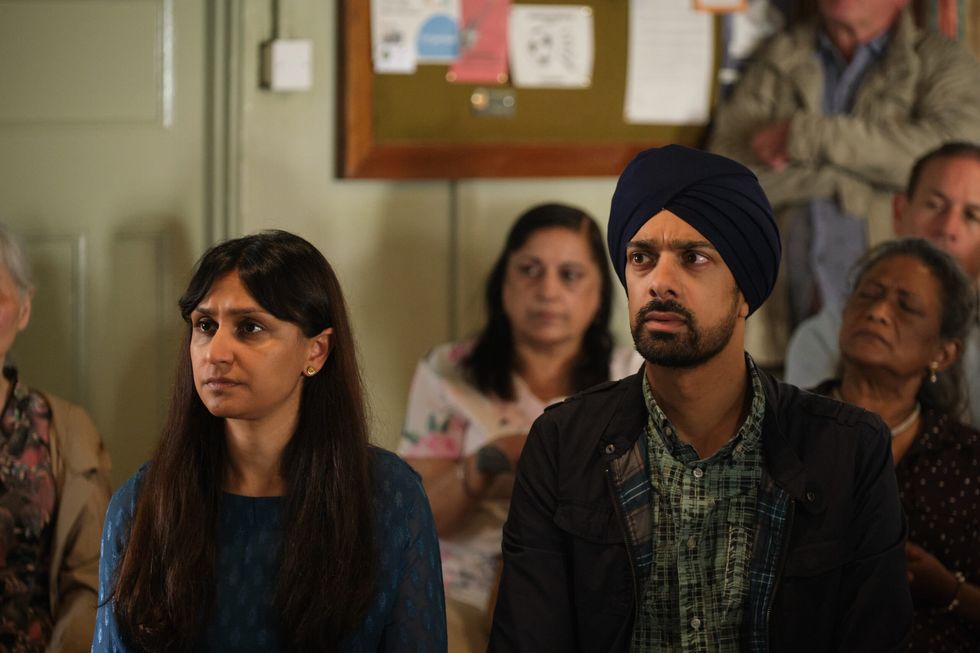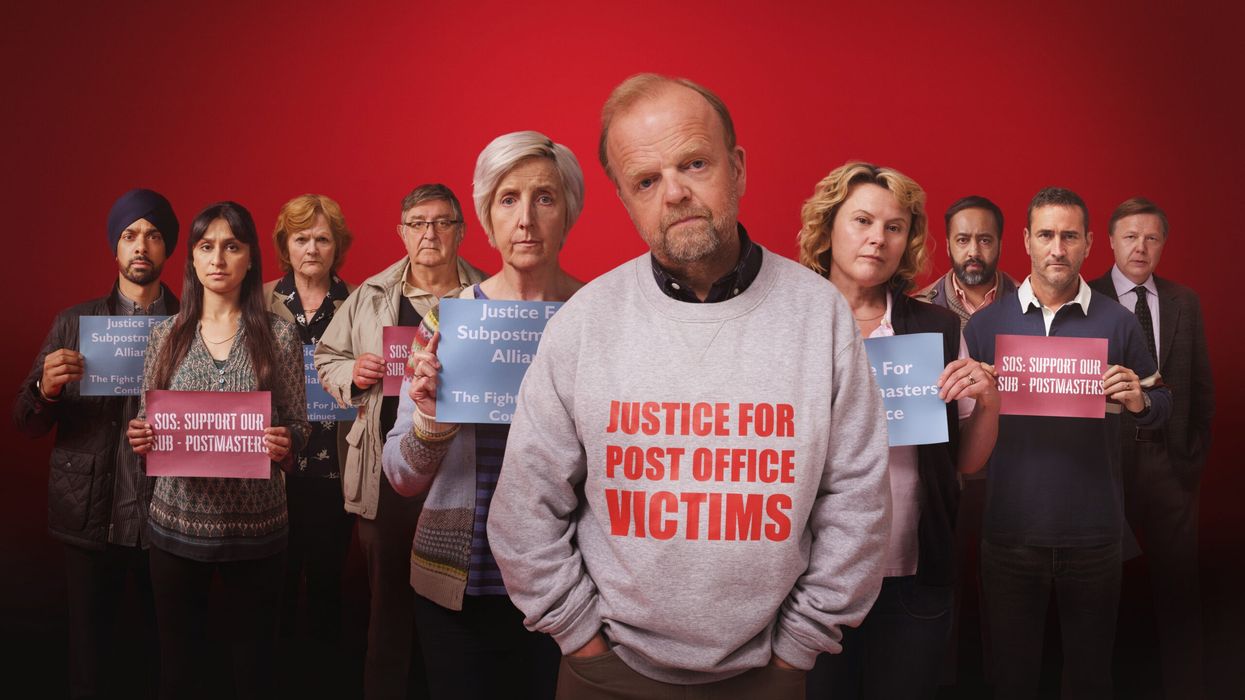THE four-part ITV drama, Mr Bates vs the Post Office, has changed the debate about the scandal resulting from the implementation of the faulty Horizon software by Japan’s Fujitsu company.
Following the national outcry triggered by the show, prime minister Rishi Sunak told the BBC’s Sunday with Laura Kuenssberg last Sunday (7) that justice secretary Alex Chalk was looking at plans to exonerate all the victims and take away the Post Office’s ability to prosecute.
Sunak said, “The justice secretary is looking at the things that you’ve described. It wouldn’t be right to pre-empt that process, obviously, there’s legal complexity in all of those things, but he is looking at exactly those areas.”
The Metropolitan Police is also investigating a number of people, including two former Fujitsu experts, who were witnesses in the trials, for perjury and perverting the course of justice.
The scandal has been rumbling on since 1999 when the Post Office began to notice a shortfall between the money subpostmasters were supposed to be taking in and the balances at the end of the day’s trading. The drama revealed that IT experts at Fujitsu could alter figures without the knowledge of subpostmasters.
It is disappointing that the drama has rather downplayed the Asian element of the story. It could have been told through Seema Misra, who – unlike Alan Bates (played by Toby Jones) – was actually sent to prison. At one stage, she was put under such pressure that she thought of taking her own life.
Meanwhile, Paula Vennells, the CEO of the Post Office from 2012-2019 who presided over the prosecution of the subpostmasters, was rewarded with a CBE “for services to the Post Office”.
Under pressure, she is now handing back the honour. But the question is whether she and her senior executives should be jailed for “the biggest miscarriage of justice in British criminal history”.
Lia Williams has spoken of her portrayal of probably the main villain in the drama: “Many raise the question as to whether or not she should face prison…. She clearly got it horribly wrong.”
Viewers are told at the start of the series, “This is a true story,” with the qualification, “Some scenes and characters have been changed.”
Mr Bates vs the Post Office is a TV show, not a documentary, but it does attempt to get to the deeper truth behind the prosecution of 3,500 subpostmasters of whom 700 were found guilty and 236 sent to prison. Four died by suicide.

To date, 93 convictions have been overturned and, of those, only 30 people have agreed “full and final settlements”.
In 2021, investigative journalist Nick Wallis spoke to Eastern Eye about his book, The Great Post Office Scandal: The fight to expose a multimillion pound IT disaster which put innocent people in jail. He suspected the Post Office made a special point of targeting Asians. “Anecdotally, I think, non-white subpostmasters got bigger sentences,” he said.
One of them was Seema, a subpostmaster in West Byfleet, Surrey, who was sent to prison for 15 months in 2010 for allegedly stealing £75,000 even though she was pregnant with her second child at the time. She was released after four months, and her conviction – along with those of 38 others – was quashed by an appeal court in 2021.
Wallis, who once worked for the BBC in Surrey, was drawn into the Post Office story when Seema’s husband, Davinder, got in touch with him and said his wife had been sent to prison even though she was innocent.
Seema said: “Reading this book made me cry. Nick brings to life what the Post Office did to me and to my family in a way that makes reading it feel like re-living it. It is a story which broke my heart. You may think it could never happen to you – or to someone you love. This book shows you would be wrong. It happened to me.”
ITV probably reckoned the show would not have made the impact that it has if the story of the scandal had been told with someone like Seema, an Asian woman, as the principal protagonist. It needed white heroes and heroines to make an impact with the public – which it has.
There are a couple of Asian subpostmasters who have been worked into the drama. One is Saman Kaur (played by Krupa Pattani). Her husband Jasgun Singh is portrayed by Amit Shah.
Saman’s character is based on that of Jess Kaur who was taken to court and accused of theft in 2009. The case was later thrown out, but not before she suffered a complete mental breakdown and attempted suicide. Doctors decided to apply electro-convulsive therapy to her brain, but, as a result, she lost all memory of her childhood.
“Even until today I’m still on a lot of medication,” Jess said. “I might not look like I’m ill to a lot of people, but I’m suffering very badly with PTSD. If I walk past a Post Office, I feel sick. This was my life, it was going to be for my children’s future and they have taken that away from me.”
Asif Khan portrays Mohammad Sabir, depicted in the series as having a poor command of English. He took over two Post Office branches, Cottingley and Crossflatts (in Bingley, north-west of Bradford) in the space of 12 months in 2006-2007. He had particular problems with how to account for his lottery scratchcards on Horizon. He tried to get rid of both Post Offices, but before he could he was audited, and a discrepancy of £5,000 was found on his scratchcards in one branch. He was suspended in both branches and then “terminated”.
The TV show has been written by Gwyneth Hughes, who has done an excellent job in bringing to life the people who suffered as a result of the computer malfunction. But perhaps the Asian bits could have been written better.
Hughes has been quoted as saying: “Every storyteller has to make choices, and anchoring our narrative with Alan Bates was an easy one. But how to choose our supporting cast, among the thousands of lives ruined, over a quarter of a century?
“As we started work, the country was in lockdown, so we got on the phone. Lock[1]down ended, I got on the road. Drank a lot of tea and made new friends. These were painful choices – in the end we had time to tell eight stories. But every bruised and battered subpostmaster has a jawdropping story to tell. Every one of them deserves to be heard.”
She added: “On the Post Office side, perhaps unsurprisingly, fewer doors opened. I have not met Paula Vennells, though I did get a good look at her astonishingly glamorous legal team on the first day of the public inquiry. What was the chief executive thinking? What did she know, and when? Will we ever find out? I spoke to people who worked with her, and I tried to navigate fairly between their multiple insights into her conduct and personality.
She went on: “It’s the question I am asked most often – what on earth was going on inside the management of the Post Office? What were they on, these people? Was it groupthink? Lack of imagination? Confirmation bias? A belief that as public servants they were somehow too virtuous to do wrong? Poor training, plain stupidity, or rank villainy?
“It is, of course, for the public inquiry to find definitive answers. But every sub[1]postmaster has a view, and so does every member of our production team. As played by Toby Jones, our hero Alan Bates faces this question in the final episode of the series. Asked if the Post Office is evil or incompetent, Alan replies: ‘It amounts to the same thing, in the end.’”




